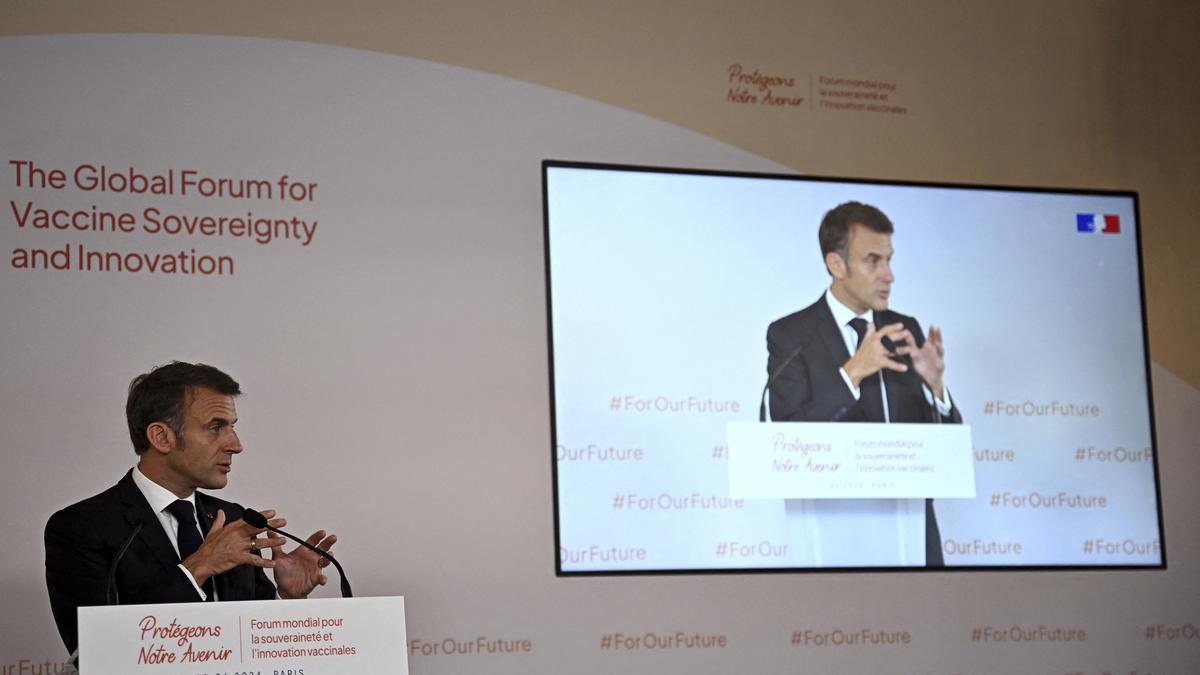
France's Macron, African leaders push for vaccines for Africa after COVID-19 exposed inequalities
The Hindu
The launch of the African Vaccine Manufacturing Accelerator, which will provide financial incentives to vaccine manufacturers, offered a momentary break for Mr. Macron from domestic political concerns as legislative elections loom on June 30 and July 7.
French President Emmanuel Macron is joining several African leaders on June 20 to kick off a planned $1 billion project to accelerate the rollout of vaccines in Africa, after the coronavirus pandemic exposed gaping inequalities in access to them.
The launch of the African Vaccine Manufacturing Accelerator, which will provide financial incentives to vaccine manufacturers, offered a momentary break for Mr. Macron from domestic political concerns as legislative elections loom on June 30 and July 7.
Many African leaders and advocacy groups say Africa was unfairly locked out of access to COVID-19 treatment tools, vaccines and testing equipment — that many richer countries bought up in huge quantities — after the pandemic swept the world starting in 2020.
WHO, advocacy groups and others want to help Africa get better prepared for the next pandemic, which many health experts say is inevitable. When the coronavirus pandemic began, South Africa was the only country in Africa with any ability to produce vaccines, officials say, and the continent produced a tiny fraction of all vaccines worldwide.
WHO failed in its efforts to help countries agree to a “pandemic treaty” — to improve preparedness and response to pandemics — before its annual meeting last month. The project was shelved largely over disagreements about sharing of information about pathogens that cause epidemics and the high-tech tools used to fight them.
Thursday’s event in Paris also aims to help give a funding shot-in-the-arm to Gavi, the Vaccine Alliance, a public-private partnership that helps get needed vaccines to developing countries around the world.
Gavi says the project aims to make up to $1 billion available over the next ten years help boost Africa’s manufacturing base, to improve global vaccines markets and improve preparedness and response to pandemics and outbreaks like HIV, malaria, TB and COVID-19.













